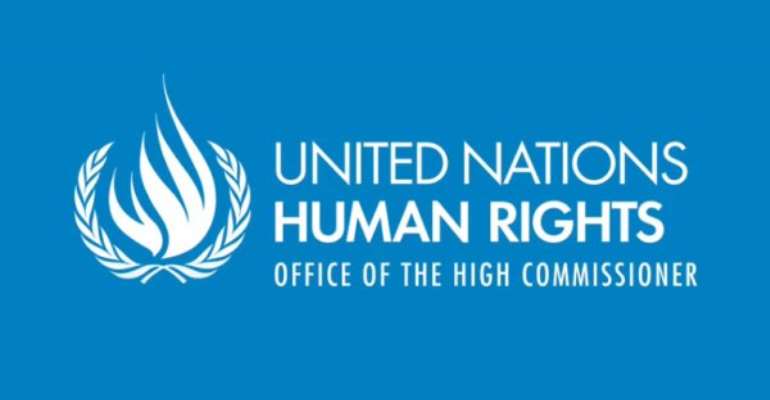Central African Republic: UN rights experts urge all sides to step back from the brink of all-out conflict

GENEVA, Switzerland, December 19, 2013/African Press Organization (APO)/ -- A group of United Nations human rights experts* today urged all parties in the Central African Republic to call an immediate and unconditional halt to the violence and to bring their forces and militias under control and immediately stop attacks against civilians.
“The current shocking violence in the Central African Republic threatens to descend into a full-scale sectarian conflict between Christian and Muslim communities - but it can and must be halted now,” the UN experts said, while expressing grave concern over the escalating violence in the country and the rapidly deteriorating human rights and humanitarian situation
A coalition of mainly Muslim forces known as the 'Séléka' forced President François Bozizé from power in March 2013. A transitional arrangement was made to restore peace and pave the way for democratic elections. The present political atmosphere in the country is not conducive to these arrangements.
Armed clashes have continued and escalated in recent weeks, sometimes on religious grounds with Christians and Muslims launching reprisal attacks against each other in a number of places in a country that has never experienced such sectarian violence before.
Atrocities have been reported by all parties with UN and media reports suggesting a rapidly rising toll of civilian victims including women and children. Retaliatory attacks and arbitrary executions by armed elements from both sides, the recruitment of child soldiers, attacks on medical facilities, and increasing incidents of rape, have all been documented.
“However, an opportunity remains to pull back from the brink of all-out war with the terrible consequences that this entails and to establish an immediate truce to enable dialogue and peace talks to begin,” the experts said. “We urge leaders on all sides to grasp every opportunity to avoid further bloodshed.”
They welcomed calls for action by the UN Human Rights Council, the UN Security Council as well as authorities of the Central African Republic itself, and stressed that a coordinated approach is essential to resolve the current situation and ensure a lasting peace.
While they welcome attempts by some religious leaders to establish inter-faith dialogue and to defuse tensions, the experts emphasized the primary responsibility of the State to protect the human rights of all. They called upon the International Conference on the Great Lakes Region to take urgent measures to resolve the crisis.
The UN Experts urged leaders from all sides to “take control of their forces and militias and to cease atrocities immediately,” but warned that, in the current dangerous environment, some initiatives to disarm militia groups were leaving some communities vulnerable to attack by opposing forces.
“We call for international actors to closely monitor the situation in order not to leave communities undefended,” they said.
“Full, secure and unfettered access must be provided to humanitarian agencies in view of the hundreds of thousands of people displaced in the country and the rapidly deteriorating humanitarian situation,” the UN human rights experts stated.
(*) The United Nations human rights experts are part of what it is known as the Special Procedures of the Human Rights Council. Special Procedures, the largest body of independent experts in the United Nations Human Rights, is the general name of the independent fact-finding and monitoring mechanisms of the Human Rights Council that address either specific country situations or thematic issues in all parts of the world. They are charged by the Human Rights Council to monitor, report and advise on human rights issues. Currently, there are 37 thematic mandates and 14 mandates related to countries and territories, with 72 mandate holders. In March 2014, three new mandates will be added.
Special Procedures experts work on a voluntary basis; they are not UN staff and do not receive a salary for their work. They are independent from any government or organization and serve in their individual capacity
